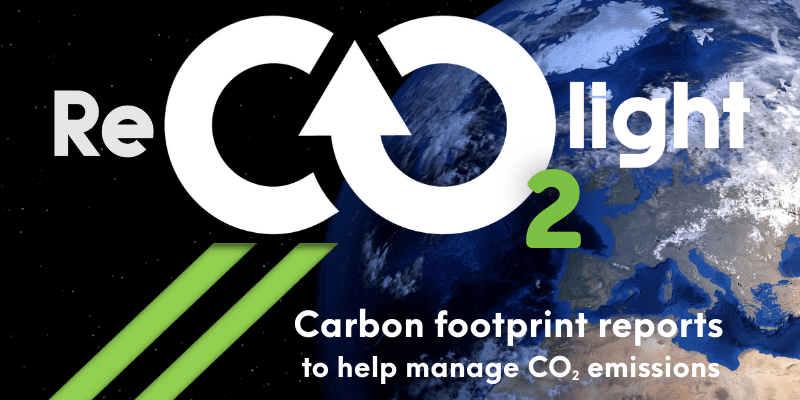A new study appears to find that over two thirds of Local Authorities are failing to gather Scope 3 carbon emission figures, despite growing evidence that more than 70% of councils’ emissions come from these indirect sources.
The study looked at UK local authorities employing more than 500 staff, and was commissioned by employer commute emissions solutions provider Mobilityways. It found that local authorities are well behind the private sector in terms of gathering and analysing key Scope 3 Greenhouse Gas (GHG) emissions data which, according to the Local Government Association, represents between 70 and 80 per cent of a typical local authority’s total emissions1.
GHG emissions are categorised into three core Scopes as laid out in the Greenhouse Gas Protocol. These comprise Scope 1 ‘direct’ emissions, Scope 2 emissions from purchased electricity, heat and steam; and Scope 3 ‘indirect’ emissions – much of which comes from suppliers and employees including emissions derived from council and care workers’ commutes to and from their places of work.
The study, which can be downloaded for free from Mobilityways’ website, found that only 29 per cent of councils have begun implementing Scope 3 reporting to collect indirect emissions data from upstream and downstream activities including employee commutes, business travel, supplier emissions, and end-of-life product processing.
The study was also able to compare local authorities’ emissions reporting records with private sector companies’ progress. For example, nearly three quarters (71 per cent) of large financial companies and 54 per cent of large construction firms had started Scope 3 reporting – putting these sectors well ahead of local authorities’ Scope 3 reporting progress.
In specific Scope 3 categories local authorities had, in many cases, failed to gather the accurate data they need before developing strategies to reduce each ‘indirect’ carbon source. For example, only seven per cent of authorities confirmed ‘they had audited their suppliers’ emissions data to verify accuracy using a uniform reporting framework’, as opposed to 55 per cent of private sector firms which Mobilityways questioned for a nationwide multi-sector study of large UK firms.
Furthermore, just 13 per cent of local authorities questioned for the Mobilityways Road to Net Zero Study had fully implemented the Greenhouse Gas (GHG) Protocol Corporate Value Chain Scope 3 Accounting & Reporting Standard, as against 48 per cent of financial services organisations.
Of the minority of authorities which had started Scope 3 reporting, only seven per cent had worked out a way of measuring GHG emissions from employee commutes. Yet local authorities could benefit significantly from tackling their employee emissions simply because they are such large employers. They have 2.25m staff on their payrolls – representing nearly seven per cent of the total UK workforce. Yet just 42 per cent of local authorities reported setting absolute targets for emissions reduction from employee commuting to date.
The study also uncovered evidence of major concerns from sustainability leaders of local authorities about the quality and comparability of the emissions data they were gathering. 61 per cent of UK local authorities expressed major concern about the ‘lack of standardisation for weighting and measuring emissions performance, especially as regards Scope 3 reporting’.
Meanwhile, over half (54 per cent) of authorities were very concerned about the ‘richness of the (emissions) data’ they were collecting. This group admitted ‘we don’t really know the story behind the (Scope 3) numbers yet’. 62 per cent also confessed an over reliance on self-reported environmental performance data from suppliers.
Julie Furnell, Managing Director of Mobilityways, said:
“Our research findings suggest that local authorities are behind other sectors with regards to Scope 3 emissions reductions. They don’t seem to be able to devote sufficient resources to gathering and making sense of emissions data and then setting achievable category-level emissions reduction targets.
“We think the key reason for this is that they’ve had to focus incredibly hard on reducing both the emissions and carbon-based energy usage of their buildings and facilities across their entire estates.”
This focus has been made more pressing in the last year and a half by the increased cost of fossil fuels. In addition, central government grant schemes such as the Public Sector Decarbonisation Scheme and Social Housing Decarbonisation Fund, as well as the £4 billion of ringfenced Net Zero-linked investment for local authorities by the UK Infrastructure Bank, have all served to encourage authorities to focus their energies on ‘greening’ their buildings, as well as increasing the mix of green energy usage by them – adding more solar panelling and wind turbines serving their estates, and exploring investment in heat pumps and electrification.
Julie Furnell, Managing Director of Mobilityways, added: “A hard focus on chasing central government grants to improve the energy efficiency of buildings has come at the expense of locating and tapping other more cost-effective emission reduction opportunities.
Encouraging staff behaviour change to reduce emissions is surely the next big opportunity to ensure local authorities stay on track to hit their Net Zero targets.”
Mobilityways said its several years of extensive consumer mobility data has found that the average employee generates 601kg of CO2e per year. In rural areas, where average commute distances rise dramatically, it can be as high as 800kg per commuter.
The group’s analysis appeared to reveal that a sustainable travel option is available to just over 95 per cent of employees it surveyed and 40 per cent of respondents were open to exploring those options immediately.
Julie Furnell, Managing Director of Mobilityways, added: “Supporting workers to break old travel behaviours which harm the environment and slow up authorities’ Net Zero progress must now become a greater focus for sustainability heads.
“The good news is, by using data to identify the sustainable travel options that are already available, it’s possible for most companies to cut their commuting emissions by half or more without doing anything particularly radical.
“Some of the companies we work with have taken bigger steps such as identifying where the majority of their employees live and relocating offices nearer to them or implementing flexible working and halving the number of parking spaces they need.
“But for most, using our tools to measure and benchmark their emissions, then clearly mapping out the transport alternatives for their employees, is proving enough to start making substantial cuts to their commuting emissions.”
The full 48-page ‘Road to Net Zero Study’ can now be downloaded here: https://www.mobilityways.com/insights/road-to-net-zero-study.
Notes
1 Local Government Association’s guidance document entitled ‘Climate Change: reporting guidance for local authorities’
















